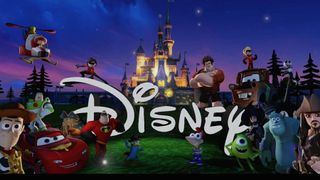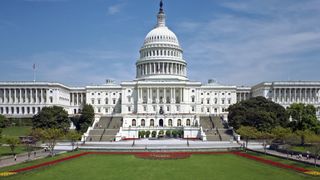Comcast Makes All-Cash Bid for Fox Assets
Comcast formalized an offer to purchase certain 21st Century Fox assets once pledged to The Walt Disney Co., committing $65 billion in cash for the properties and touching off what could be a lengthy bidding war.
Comcast said in May that it was prepared to make a “superior” all-cash bid for the Fox assets.
On Wednesday (June 13) one day after U.S. District Court Judge Richard Leon approved the other mega-deal in the media space – AT&T’s $108.7 billion purchase of Time Warner -- Comcast made good on that promise.
"We have long admired what the Murdoch family has built at Twenty-First Century Fox," Comcast said in a letter to Fox's board of directors Wednesday. "After our meetings last year, we came away convinced that the 21CF businesses to be sold are highly complementary to ours, and that our company would be the right strategic home for them."
The offer values the Fox assets at about $35 per share, a 19% premium to the Disney deal.
Related: AT&T-Time Warner Cleared to Merge
Comcast had been waiting on a favorable decision in the AT&T-Time Warner deal before launching its bid. In addition to the Fox assets, Comcast also has a $31 billion offer on the table for British satellite TV company Sky, which is 39% owned by Fox. With the two deals, Comcast has committed more than $100 billion to the Murdoch family, the founders and largest shareholders of both Fox and Sky.
Multichannel Newsletter
The smarter way to stay on top of the multichannel video marketplace. Sign up below.
Related: Comcast’s Manifest Destiny
The addition of Fox’s cable channels FX, FXX and National Geographic; movie and TV production studio 20 Century Fox; 21 regional sports networks; and its 30% interest in Hulu would add to Comcast’s existing content assets, housed within NBCUniversal. Coupled with NBCU’s NBC broadcast network and 14 cable channels – including Bravo, USA Network and Syfy – the deal makes the already largest cable operator in the country -- with 22 million video and 25 million high-speed internet customers – into a formidable content player.
A successful Fox bid would also put a huge debt burden on Comcast, increasing its leverage to $164 billion, according to Moody’s Investors Service, second only to AT&T-Time Warner.

While Roberts has fired the first shot, the battle is far from over. Disney is expected to make an aggressive effort to keep intact the Fox deal it reached in December. That deal, now valued at about $68 billion, will likely be sweetened with additional cash. The question is, which side will blink first.
Related: Flurry of Deals Expected in Wake of AT&T-Time Warner
Both Roberts and Disney chair and CEO Bob Iger are staking their reputations on this deal. Although a consummate negotiator, Roberts has gotten the stiff-arm twice before – the 2004 play for Disney that was rejected by shareholders and a 2015 deal for Time Warner Cable that was abandoned after it was clear it wouldn’t pass regulatory muster.
Regulatory issues aside – and there are issues – Comcast sees the Fox and Sky assets as a way to diversify its holdings both online and internationally.
Related: AT&T-Time Warner Merger Approval Draws Crowd
The deal would give Comcast control of two sizable content and distribution assets inside the U.S. (online video service Hulu) and outside (U.K. satellite-TV giant Sky).

Hulu, the online service partly owned by Disney (30%), Fox (30%), Comcast (30%) and Time Warner (10%), about a year ago launched Hulu Live, a virtual multichannel video programming distributor that now has about 800,000 customers. That’s in addition to the Hulu SVOD service, which boasts around 20 million customers.
Getting Fox’s 30% interest in Hulu would give Comcast 60% control of a national OTT distribution arm — it would likely try to buy out Disney and Time Warner at a later date — and could position the cable operator nicely for any changes that may come in the distribution business.
Adding Fox Networks International, Sky and Star India, Fox’s pay TV network in India, would also lessen the blow of increasingly intense competition in the U.S. by boosting Comcast’s international exposure from 9% of total revenue to 25%.
“It really comes down to who wants Fox and Sky the most and who is willing to take leverage up beyond their historical comfort zone, particularly as the winning bid is likely to be all-cash or cash-heavy,” BTIG media analyst Rich Greenfield wrote in a recent blog post. "Disney has never been in a bidding war, whereas Comcast has. However, we have a really hard time seeing Iger ending his career in defeat to Comcast and then simply retiring after the loss (damages his legacy). On the other hand, we cannot imagine Brian Roberts as an owner who is looking out 30+ years losing the last major chess piece on the game board that he covets, especially to Disney. That is not the storybook ending Roberts wants either.”
Because a Comcast deal would combine two studios (Fox and Universal), it would likely get some extra antitrust scrutiny. Robert McDowell, former Republican FCC commissioner, has said the same in reference to a Disney-Fox deal, which would also combine major programming assets.

But, at least on the FCC side, three deregulatory Republicans see a fiercely competitive market for video distribution from both traditional distributors and massive edge players, and tend toward allowing companies to scale up to do battle in that space.
The deal would certainly get a lot of pushback in Washington from consolidation critics still smarting over Comcast-NBCU, likely including smaller cable operators who already say the combination of Comcast with NBCU's programming assets is causing them competitive harms.
Putting an exclamation point on such distribution and programming combinations, at least for consolidation critics, was last week's elimination of net-neutrality rules, which they say will free up powerful players to favor their own online programming. Comcast has said it does not block, throttle, prioritize for pay or favor its own content -- all pledges the Federal Trade Commission can enforce (though critics note they are also positions it could change given that the bright-line rules against all of those practices have been eliminated).
The AT&T-Time Warner deal approval may well break the dam of pending M&As, but Judge Leon was simply one judge in one circuit. It would likely take a decision on appeal, if Justice appeals the case, to create wider precedent for how courts would treat such mergers. However, Judge Leon warned against looking beyond the facts of this specific merger to draw wider conclusions.
Consolidation critics were taking aim at the deal .
"Comcast thinks the time is ripe for deal-making, but the public will quickly sour on this proposal," said Public Knowledge Research Director S. Derek Turner. "We simply don't need the country's biggest cable company and broadband provider controlling even more content and taking even more of our money every month.“If approved, the 21st Century Fox takeover would saddle Comcast with a whopping debt load. There’s every reason to believe that internet and pay-TV rate hikes would follow this deal, as Comcast exploits its dominant position to gouge its competitors and customers alike.”
"Comcast’s bid to buy 21st Century Fox in the immediate wake of a federal judge’s approval of the AT&T-Time Warner merger is a catastrophe in the making," said Demand Progress director of communications Mark Stanley "With the FCC’s order gutting net neutrality protections going into effect this week, the door has been kicked wide open for giant internet providers like Comcast and AT&T to block and discriminate against online content."
John Eggerton contributed to this story
